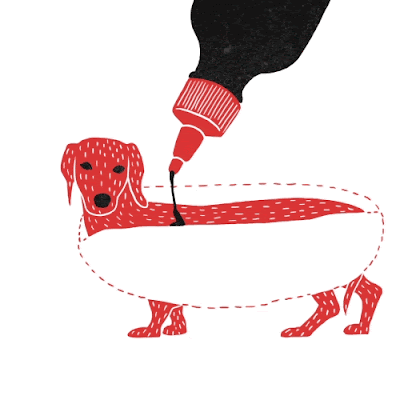New from NPR 科學家是否太愛老鼠了?
From NPR
你是否想過,老鼠為何是科學家做實驗時最喜歡使用的動物?
蟒蛇,貓咪或是其他的動物難道行不通嗎?
撇開果蠅fruit flies與老鼠mice,科學家是否還有其他選擇?
這篇NPR的廣播探討以老鼠為實驗對象
所可能面對的限制與未來科學研究裡
動物實驗的發展方向
下載聲音檔請點我
Perhaps Scientists Like Lab Mice TOO Much
Heard on All Things Considered
The modern lab mouse is the most ubiquitous無所不在 animal in biomedical生物醫藥 research. In the U.S. and other parts of the world, mice studies have quadrupled成長了四倍之多 since 1965. One study found they make up 60 percent of animals used in experiments while studies on dogs and cats, rabbits and guinea pigs天竺鼠, zebra, fish and fruit flies果蠅 have remained about the same. Daniel Engber, in a series of articles for Slate magazine(美國人文與時事網路雜誌,1996年創刊), recently took the time to ask why - why the mouse is such a mainstay主要的依靠 of science and whether that's a good thing.
DANIEL ENGBER: All of this is about standardization標準/常規. You know, it's easier for scientists, and it's cheaper if everyone's using the same animal, and that animal is produced in factory setting. And then these animals can be distributed and people from different labs can compare their results. But really, when you look back at回顧 the history of it, we could have chosen something else. And it's just once we chose the specific kind of animal, the ball got rolling啟動整個程序, and then there was an incentive誘因 to stay focused on that animal.
SULLIVAN: You wrote in the article that for scientists to change from mice to a different animal would be like changing their religion.
ENGBER: Yeah. I mean, in science, in biomedicine, people talk about being, you know, I'm a mouse person, oh, I'm a monkey person. At conferences, the mouse people will sort of cluster群 around posters of一整掛 mouse studies and the monkey people will cluster around posters of monkey studies. And also, if you publish a paper - let's say you're a mouse person, you did a study using mice - it's going to be other people in your community who are the peer reviewers for that paper, who help decide whether you should get a grant經費 to continue your mouse research. So there are these very contained groups of people and the mouse community happens to be much bigger than any of the other communities.
SULLIVAN: And this has had a lot of implications關聯/暗示 for some of the results of the studies that scientists have conducted. One of them that you mention was a series of studies on tuberculosis肺結核.
ENGBER: Right. So mice have been used almost exclusively in tuberculosis research for the last 30 or 40 years. And again, that allows a lot more experiments to be done for the same amount of money because mice are so efficient and so cheap. But there are problems, and in that particular case, mice just don't get the same kind of tuberculosis that humans get. So the question is any animal model動物模式 you use for disease is going to be similar to the human version of the disease in some ways and different in other ways. If all of your experiments are done on the same animal, those differences are just going to keep coming up again and again and again. You know, it's self-limiting自我設限.
SULLIVAN: I mean, why not just switch to another animal?
1. ENGBER: Well, switching to another animal would be very, very expensive at this point. I mean, we've already come so far in mouse research, and we have all of these wonderful tools, genetic tools遺傳工具and just accumulated knowledge about the mouse. We just have to rebuild all of that knowledge and rebuild all those tools. We'd have to figure out how to do all the things, all the genetic engineering遺傳工程 we can do with mice. We'd have to figure out how to do that with some other animal, and we're starting to learn some of those things for animals like the marmoset狨猴and even the rat.
But another idea would be to say, OK, we have all these wonderful tools for the mouse, but let's invest more money into at least developing the science of the naked mole rat無毛鼴鼠, the marmoset, the python巨蟒, whatever - some other animals that might have some other secrets to share about the nature of disease疾病的本質.
SULLIVAN: Daniel Engber is a senior editor資深編輯 at Slate magazine. And you can find a link to his reporting on lab mice on our website, npr.org. Daniel, thanks so much.
ENGBER: Thank you.











留言
張貼留言